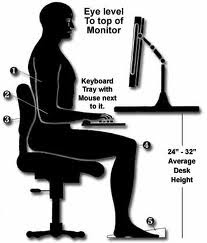It is often said that if you stop writing day to day that you'll likely stop altogether. That isn't the case and it does make it sound as though writing is more chore than pleasure. I'd say it is about fifty-fifty when you get started but if there is a story scratching at your mind, demanding to be written, then you will definitely begin writing again no matter what. Only exhaustion, so-called writer's block and disinterest will ever stop you from writing. A day or two, a week or two, off won't mean you will never write again.
Everyone else can take a holiday and rest so why not a writer. Besides, some good can come from a writer taking a break.
Breaks allow:
- The mind to begin seeing the whole picture rather than the details.
- The mind time to pick out contradictory details.
- Time for extra thought or research.
- Time for a new story to formulate in your mind.
- Time for a new idea on how to solve a tricky problem to formulate.
- Time for your energy to rebuild.
- Time to catch up on the other things in life that need attention.
- Time to explore the world and discover new things to write about.
- Time to gain new experiences which can be used to make your characters more rounded.
- Time to break through the hermit shell and practice your social skills.
- For those of you who work all hours, time to sleep and relax, lower that stress level.
- Time to read what other people have written.
- You to stretch your bones and muscles back into a normal shape and improve your health.
I'd suggest a rest between drafts or when a major problem strikes and you need time to think. I'd also suggest a break between books for many of the reasons above.
As a side note, don't forget to sleep properly.
For everyone, sleep is important, writers included.
- Learning and memory: Sleep helps the brain commit new information to memory through a process called memory consolidation. In studies, people who’d slept after learning a task did better on tests later.
- Metabolism and weight: Chronic sleep deprivation may cause weight gain by affecting the way our bodies process and store carbohydrates, and by altering levels of hormones that affect our appetite.
- Safety: Sleep debt contributes to a greater tendency to fall asleep during the daytime. These lapses may cause falls and mistakes such as medical errors, air traffic mishaps, and road accidents.
- Mood: Sleep loss may result in irritability, impatience, inability to concentrate, and moodiness. Too little sleep can also leave you too tired to do the things you like to do.
- Cardiovascular health: Serious sleep disorders have been linked to hypertension, increased stress hormone levels, and irregular heartbeat.
- Disease: Sleep deprivation alters immune function, including the activity of the body’s killer cells. Keeping up with sleep may also help fight cancer.



